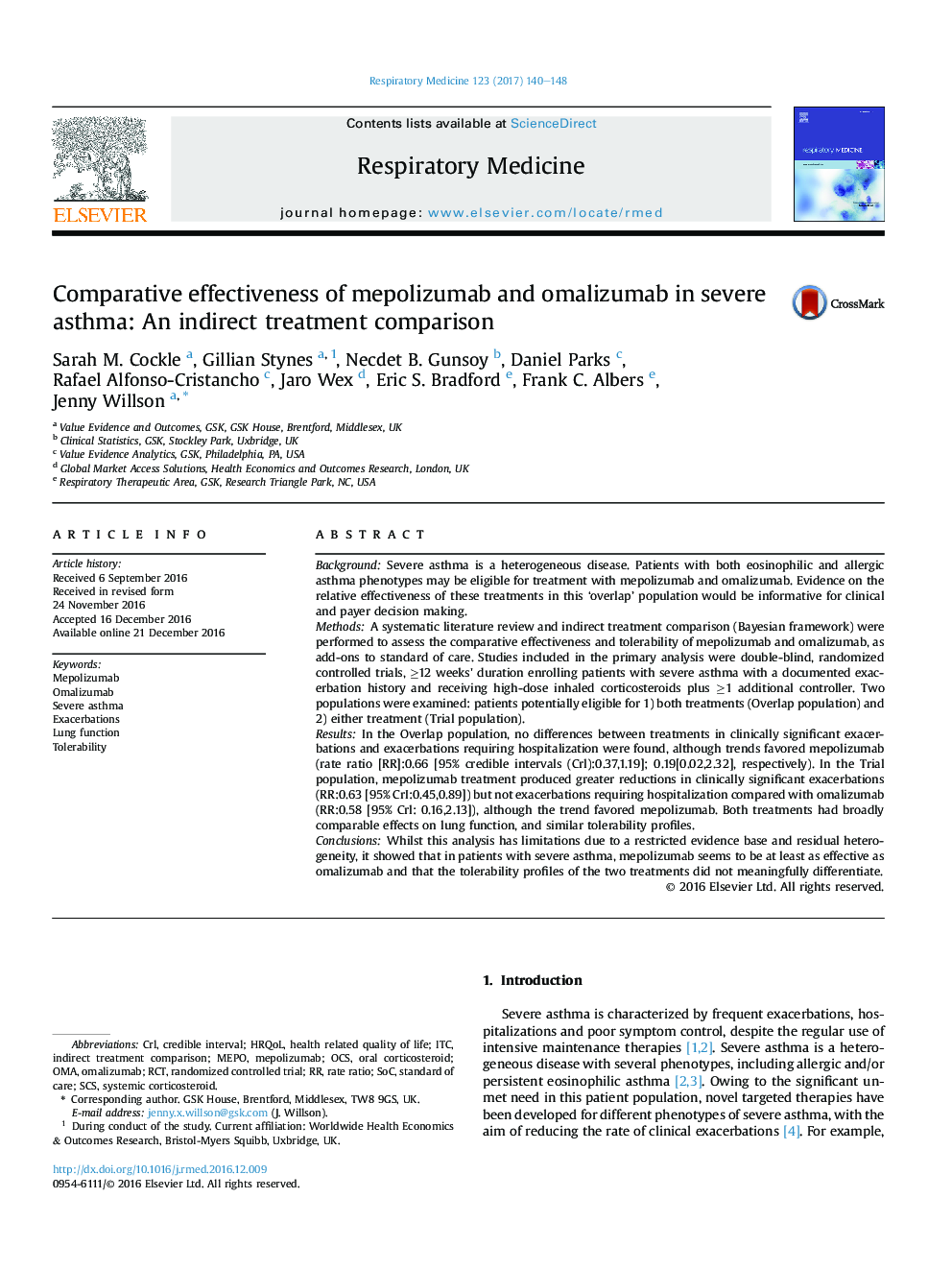| Article ID | Journal | Published Year | Pages | File Type |
|---|---|---|---|---|
| 5724890 | Respiratory Medicine | 2017 | 9 Pages |
â¢Patients with severe asthma may be eligible for both mepolizumab and omalizumab.â¢Evidence of the relative effectiveness of these treatments would be informative.â¢Treatment effectiveness was examined via an indirect treatment comparison.â¢Exacerbation rates, lung function and tolerability profiles were broadly comparable.â¢Mepolizumab seems to be at least as effective as omalizumab in severe asthma.
BackgroundSevere asthma is a heterogeneous disease. Patients with both eosinophilic and allergic asthma phenotypes may be eligible for treatment with mepolizumab and omalizumab. Evidence on the relative effectiveness of these treatments in this 'overlap' population would be informative for clinical and payer decision making.MethodsA systematic literature review and indirect treatment comparison (Bayesian framework) were performed to assess the comparative effectiveness and tolerability of mepolizumab and omalizumab, as add-ons to standard of care. Studies included in the primary analysis were double-blind, randomized controlled trials, â¥12 weeks' duration enrolling patients with severe asthma with a documented exacerbation history and receiving high-dose inhaled corticosteroids plus â¥1 additional controller. Two populations were examined: patients potentially eligible for 1) both treatments (Overlap population) and 2) either treatment (Trial population).ResultsIn the Overlap population, no differences between treatments in clinically significant exacerbations and exacerbations requiring hospitalization were found, although trends favored mepolizumab (rate ratio [RR]:0.66 [95% credible intervals (Crl):0.37,1.19]; 0.19[0.02,2.32], respectively). In the Trial population, mepolizumab treatment produced greater reductions in clinically significant exacerbations (RR:0.63 [95% CrI:0.45,0.89]) but not exacerbations requiring hospitalization compared with omalizumab (RR:0.58 [95% Crl: 0.16,2.13]), although the trend favored mepolizumab. Both treatments had broadly comparable effects on lung function, and similar tolerability profiles.ConclusionsWhilst this analysis has limitations due to a restricted evidence base and residual heterogeneity, it showed that in patients with severe asthma, mepolizumab seems to be at least as effective as omalizumab and that the tolerability profiles of the two treatments did not meaningfully differentiate.
